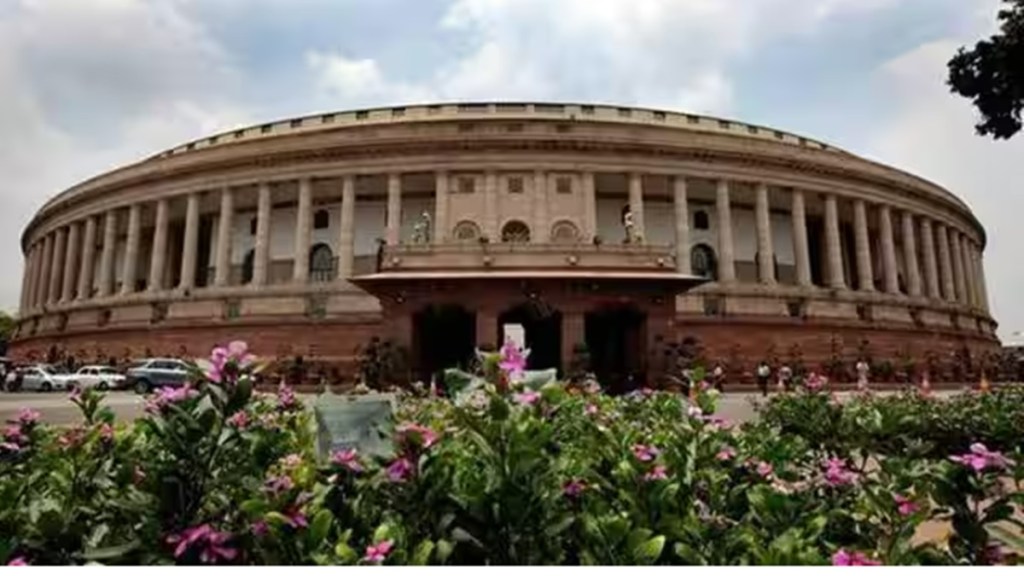By GR Reddy
The 16th Finance Commission is scheduled to be constituted in November 2023. Framing the terms of reference (ToR) of a Finance Commission is of critical importance.
The main functions are prescribed under Article 280 of the Constitution. These are making recommendations on i) the distribution of divisible pool of taxes between the Union and the states, ii) determination of inter se shares, iii) principles which should govern the grants-in-aid and, iv) augmenting the Consolidated Fund of a state to supplement the resources of local bodies. In addition, any other matter can be referred to a Commission in the interest of sound finance. Finance Commissions are being asked to take into account a number of considerations.
There has been an increase in the number of additional matters referred. Most of these additional matters related to states and excluded the Centre. For instance, the 6th, 9th and 10th Commissions were asked to assess the debt burden of only states and suggest remedial measures.
It was only in the case last four Commissions that the problem of growing fiscal imbalances of both the states and the Union figured in the list of additional matters. Most recently, two such matters referred to the 15th Commission that became controversial were, i) whether revenue deficit grants be provided to states at all and ii) whether a separate mechanism for funding of defence and internal security ought to be set up. Revenue deficit grants are recommended to those states which are assessed to have a revenue deficit post-tax devolution. In the absence of these grants, states will have to use part of their borrowings to meet their current expenditure. As defence is a Union subject, it was up to the Union to set up such a funding mechanism.
The Cabinet Resolution replacing the Planning Commission with NITI Aayog clearly articulated that the main mandate of the latter is to promote cooperative federalism. This commitment needs to be kept in view while referring additional matters to the 16th Commission.
Some of the additional matters that can be referred to the Commission are as follows. Few states resorting to freebies and reverting to the old pension system have serious fiscal implications. The Centre’s recourse to the levy of cesses and surcharges has become a constant irritant in Centre-state relations. The share of cesses and surcharges in the gross tax revenue of the Centre increased from 10.4% in 2011-12 to 20.1% in 2020-21. As cesses and surcharges do not form part of the divisible pool, tax devolution as percentage of gross tax revenue was around 30% in 2020-21 as compared with the recommended share of 41%. Another irritant is the matter of centrally sponsored schemes (CSS), which are mostly funded from the proceeds of cesses and surcharges. Most of these schemes operate in the subjects listed in the State List. CSS transfers, at `3.47 trillion in 2022-23 exceeded the FC grants by over 100%. Under the Constitution, the Commission is envisaged as the main channel of grants to states. The CSS grants are dispensed under Article 282 of the Constitution—a residual provision.
Another important issue that can also be referred to the Commission is growing income inequality among states. There is a feeling among the performing states that they are being discriminated against as their per capita incomes are relatively higher. While incentivising performing states, the constraints of backward states cannot be overlooked. Therefore, the issue of enabling backward states to develop through a separate mechanism of funding can be referred to the Commission.
Other additional matters that can be referred to the Commission are i) how to ensure compliance by the Centre with fiscal rules as fiscal consolidation cannot be achieved with just states adhering to them, ii) the desirability of fixing different fiscal deficit-GSDP ratios for different states based on their fiscal capacities, and iii) fiscal position of the states in the post-GST compensation period. Additional matters which are in the nature of adversely impacting the interests of states and their autonomy should be avoided.
The Finance Commission being a Constitutional body and empowered to determine its own procedures, the propriety of stipulating considerations has been questioned. Even if one takes the stand that it may not be inappropriate to stipulate the considerations in view the emerging developments in fiscal federalism, it is unquestionable that they should apply uniformly to the Centre and states. Most Commissions were asked to take into account the revenues of the Centre but, in the case of states, they were asked to consider the efforts made by them in raising additional resources.
One of the many considerations stipulated for the 15th Commission was highly controversial. The Commission was asked to take into account the impact on the fiscal situation of the Centre of substantially enhanced tax devolution to states following the recommendations of the 14th Commission. The higher tax devolution was intended to enhance untied transfers without reducing the fiscal space of the Centre. This was the first time that a Commission was asked to review the recommendation of its predecessor.
It goes to the credit of the Commissions that they had not taken the considerations as constraints in their working. Even so, asking the Commissions to take into account too many considerations is bad in practice, particularly when the Commissions are empowered to determine their own procedures. If considered necessary in the context developments in fiscal federalism, they should be even handed.
The writer is former official, Indian Economic Service, and adviser, government of Telangana
Views are personal


